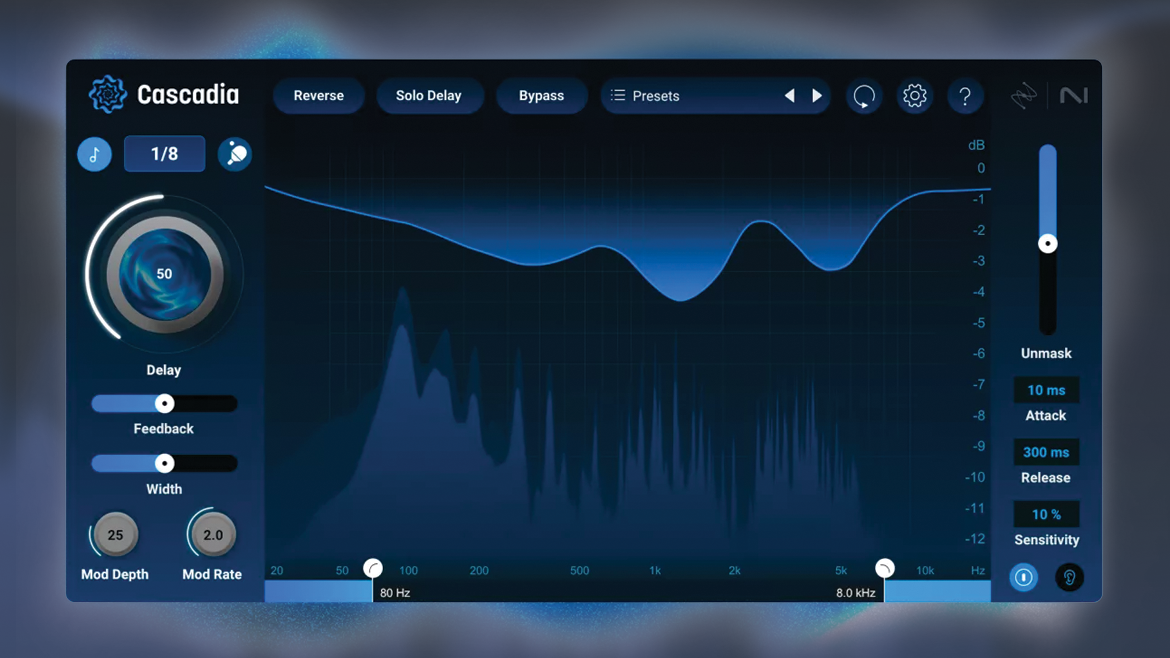
iZotope's Catalyst Series is a collection of "purpose-built" and easy-to-use plugins aimed at helping you address common mixing issues with a simple and direct approach.
First up was Plasma, an adaptive saturator that iZotope described as the "world's first" intelligent tube saturation plugin, followed by Aurora, an intelligent reverb that applies adaptive unmasking to its wet signal to make room for the dry signal, preventing muddy and unfocused mixes.
Next up in the Catalyst Series is Cascadia, a delay plugin that takes a similar approach to Aurora. iZotope says that Cascadia's adaptive unmasking carves out space in the delay signal in real time, ensuring that the original signal remains clear and focused and preventing the delay from drowning it out unnecessarily. You're able to tweak the attack and release times for the unmasking and adjust its overall sensitivity.
Unmasking capabilities aside, Cascadia looks like a fairly standard delay plugin: its delays can be tempo-synced or time-based, and you can adjust stereo width and experiment with ping-pong and reverse delay modes. Its two modulation controls will introduce tape-emulating, vintage-inspired pitch drift, while the bar running across the central visualizer can be used to apply high- and low-pass filters to the delay signal.
iZotope says that Cascadia enables you to keep your instruments and vocals present in the mix without "complex routing and long plugin chains", but the plugin's unmasking effect could be achieved quite simply by placing a conventional delay on an effects send, then adding a dynamic EQ like Trackspacer (or Ewan Bristow's free version of Florah) on the send before sidechaining the dry signal to it. If that sounds like too much effort, then Cascadia has you covered.
Available now for macOS and Windows in VST3/AU/AAX formats, Cascadia is priced at $49/£49, and you can grab all three Catalyst Series plugins for $119/£119 as part of iZotope's Cyber Season sale.







